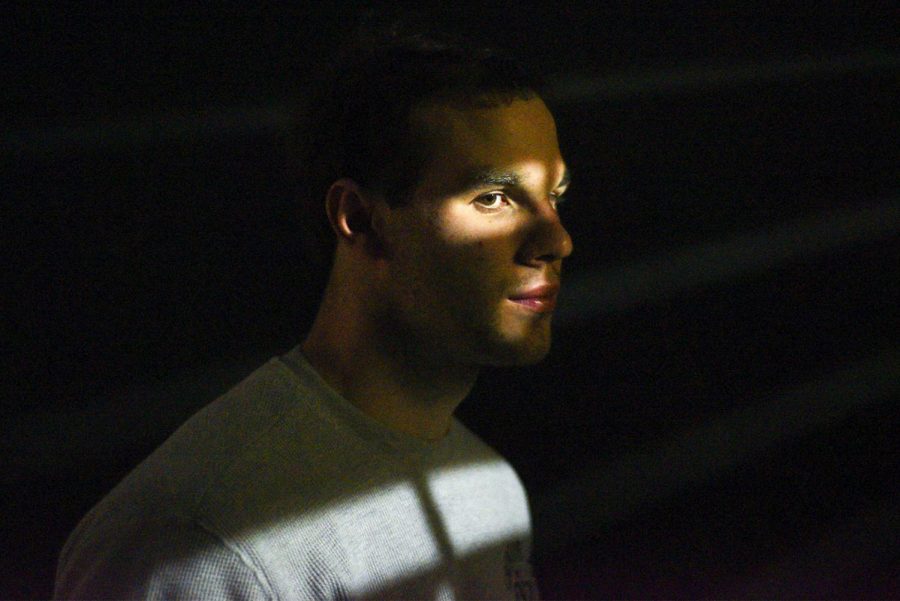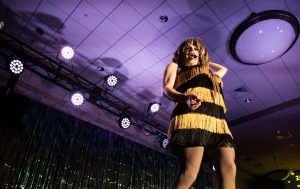Visually impaired student lacks sight, not might
November 17, 2015
WKU senior Austin Clark is by most accounts a regular Hilltopper; he goes to class in the morning, does his homework in the afternoon and hits the gym in the evening. However, unlike most students at WKU, Clark is severely visually impaired.
A native of Frankfort, Clark was born with Leber congenital amaurosis, a rare hereditary disease that causes serious loss of vision at birth. Despite the obvious obstacles of having such a condition, Clark said the hardest part about having the disease has always been convincing people he is strong enough to overcome his adversities.
“I had to learn how to persuade people [at an early age] that I was all right and nothing bad was going to happen,” Clark said.
Before attending WKU, Clark studied for two years at Bluegrass Community and Technical College. He is now pursuing a degree in financial planning. Clark attributes his decision to major in finance to his interest in helping others while being financially responsible.
“I’ve always been interested in saving money and figuring out different ways to help me and my family,” Clark said.
Leyla Zhuhadar, assistant professor of information systems, had Clark in class.
“Austin is a very smart young man,” Zhuhadar said. “I believe his disability does not affect his intellect at all, just the opposite.”
Clark gets to his classes with the help of Almanor, a guide dog he’s had since 2011. Clark briefly attended a school outside of San Francisco during his freshman year of college to bond with Almanor. Clark said this period of his life was pivotal in achieving the independence he now has.
“I’m not going to lie. I was homesick for the first couple of days,” Clark said. “But once I got [Almanor], it was crazy; she really changed my life.”
In addition to the help he gets from Almanor, Clark also points to his twin brother Aaron as a key part of his life. Aaron Clark, a senior at WKU studying sports management, said he and his brother have been inseparable since birth.
“We’re 22, and I can’t remember the last time we weren’t together,” Aaron Clark said. “We’re the closest anybody can really be.”
The two brothers regularly attend CrossFit, a strength and conditioning program based on highly structured workouts. Aaron Clark said his brother’s determination in the program inspires him to remain active.
“It’s hard to believe that with such a big disability he can still do all that stuff,” Aaron Clark said. “It helps push me in the workout too because it makes me feel like I have no excuse.
Austin Clark said one of the reasons he enjoys CrossFit is because of the support he receives from fellow participants.
“Every day it feels like you’re going to die, but once you finish it, you feel like you’ve accomplished something great,” he said. “With all the other people there pushing you, it’s like a whole other family.”
The twins both played football for Frankfort High School and have been active for most of their lives. Austin Clark said he enjoys athleticism largely because of the communal feeling he gets from being on a team.
“It gets you away from the everyday stresses, and your mind is on something else,” he said. “All the people you’re doing that with accept you and don’t think of you any different.”






















![Megan Inman of Tennessee cries after embracing Drag performer and transgender advocate Jasmine St. James at the 9th Annual WKU Housing and Residence Life Drag Show at Knicely Conference Center on April 4, 2024. “[The community] was so warm and welcoming when I came out, if it wasn’t for the queens I wouldn’t be here,” Inman said.](https://wkuherald.com/wp-content/uploads/2024/04/smith_von_drag_3-600x419.jpg)


